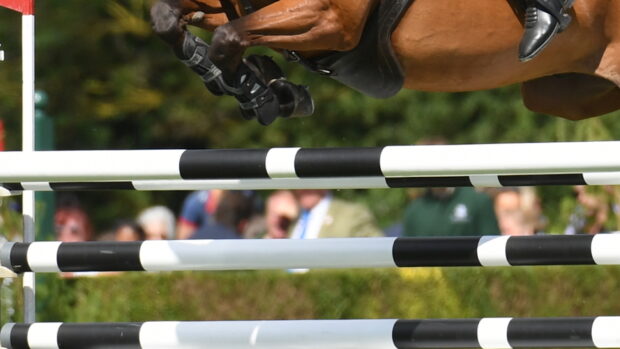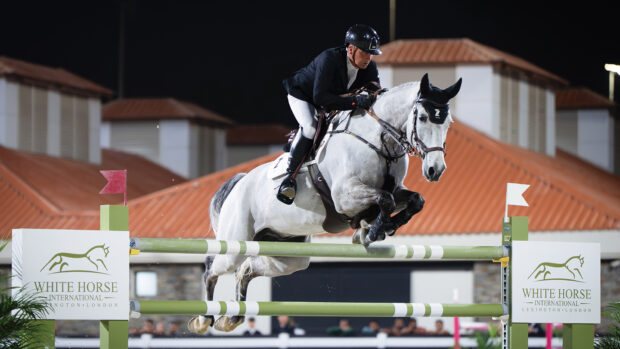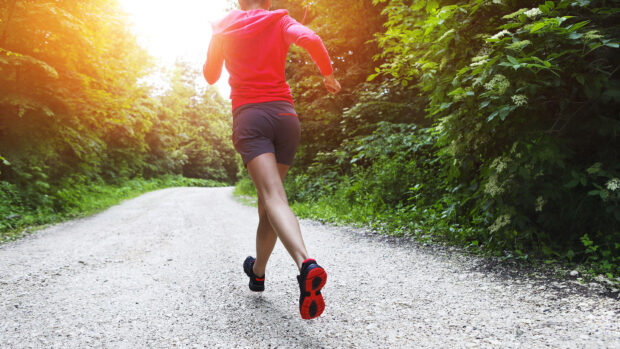Former international showjumper Graham Fletcher, who is now a highly-respected trainer, as well as a breeder and producer of young horses, calls for a swifter passage through customs at Calais for competition horses
As top competition horses continue to be delayed on lorries at Calais for post-Brexit paperwork checks, the powers that be keep talking. The welfare implications are obvious.
So what’s being done? British Equestrian tells me there’s “constant, ongoing dialogue” and that the port of Calais has been “helpful in resolving concerns”. Meanwhile, Defra speaks to their counterparts within the French government about the welfare challenges.
The federation hopes that a move from paper equine passports to pre-supplied digital paperwork will help. Work is also underway on a “low-risk horse” equine health certification, so that horses attaining a certain health threshold are subject to fewer checks.
At British Showjumping, Iain Graham points out, “The system that’s in place is what the Government agreed… fresh produce has similar issues.” Besides meeting often with Defra and show organisers, he’s urging riders to plan journeys carefully, double-check paperwork and report overlong delays.
While I appreciate the efforts being made, I believe we need a fresh approach to solving this problem – my point being that international competition horses should be treated differently from general goods and livestock.
If I sold a three-year-old to Europe, I’d accept it would be exported under Brexit trade arrangements. But for equine athletes to be stranded at Calais for six to 10 hours is wrong when they’re travelling for sport. They aren’t being permanently exported. Like their grooms, they’re coming and going and should be allowed a swifter passage.
If a British premiership football team flew to Spain or Germany for a match and had to sit on an aeroplane for hours while their paperwork was checked, there’d be an outcry. Why is it different for elite competition horses?
When everyone wants horse sport to be more inclusive, these delays also make it more expensive to jump for your country.
Although most teams are self-funded, championship riders get £1,500 each to help cover costs which, pre-Brexit, it nearly did. Last year, Olli went to Oliva Nova for the youth championships and shared costs with a team member who worked out our 50% – £3,750.
As Iain Graham admits, delays at Calais make our four- or five-star shows less appealing to overseas competitors. I agree and would like to see overseas riders’ top competition horses reclassified as sporting athletes, rather than livestock, for the benefit of shows like Royal Windsor, London and Hickstead.
I’m hoping to meet with Kemi Badenoch, minister for business, energy and industrial strategy – and a top politician. I want her to know that British showjumping has won gold medals at the last three Olympics and that as part of a multi-million-pound industry, our equine athletes deserve better.
Of course, all animals deserve humane treatment. But let’s start talking about equine athletes, not livestock; about valuable horses travelling to compete, not being sold abroad.
Perhaps this post-Brexit conundrum can be solved by redefining the status of our top competition horses? And the impetus for that needs to come from within the sport.
A dose of sunshine
We’ve been competing on the Vilamoura tour. Two weeks in, I got a call from my daughter Laura, who was driving her boys to school and was on speaker.
“How’s it going, Dad?” she asked. “Very good so far,” I told her. “Will and Olli are going really well. In two major grands prix so far, Olli has been second in both with Hello William, each time just pipped on the clock.
“The weather has been lovely, although the sunshine isn’t improving my bad knee much. I love walking, but I’m starting to struggle…”
At which point, three-year-old Lucas chipped in: “Ask Grandad, why doesn’t he just hop?”
● Do you agree with Graham’s proposals? Let us know at hhletters@futurenet.com including your name, nearest town and county for the chance to have your views published in a future issue of the magazine.
- This exclusive column will also be available to read in Horse & Hound magazine, on sale Thursday 2 March
You may also be interested in…

‘An incredible horse with all the heart and try in the world’: wing-clearing syndicate horse wows in victory

‘Going barefoot has made my horse faster and better,’ says five-star showjumping winner

No nosebands, no martingales: meet the five-star rider ‘keeping things simple’

Subscribe to Horse & Hound magazine today – and enjoy unlimited website access all year round
Horse & Hound magazine, out every Thursday, is packed with all the latest news and reports, as well as interviews, specials, nostalgia, vet and training advice. Find how you can enjoy the magazine delivered to your door every week, plus options to upgrade your subscription to access our online service that brings you breaking news and reports as well as other benefits.




